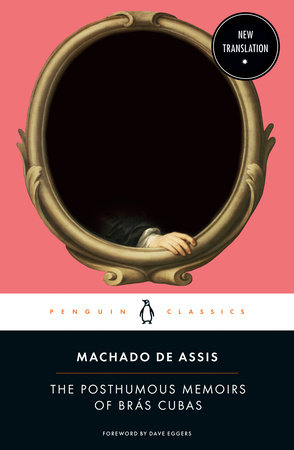

The Posthumous Memoirs of Brás Cubas
By Joaquim Maria Machado de Assis
Foreword by Dave Eggers
Introduction by Flora Thomson-DeVeaux
Translated by Flora Thomson-DeVeaux
Notes by Flora Thomson-DeVeaux
By Joaquim Maria Machado de Assis
Foreword by Dave Eggers
Introduction by Flora Thomson-DeVeaux
Translated by Flora Thomson-DeVeaux
Notes by Flora Thomson-DeVeaux
By Joaquim Maria Machado de Assis
Foreword by Dave Eggers
Introduction by Flora Thomson-DeVeaux
Translated by Flora Thomson-DeVeaux
Notes by Flora Thomson-DeVeaux
By Joaquim Maria Machado de Assis
Foreword by Dave Eggers
Introduction by Flora Thomson-DeVeaux
Translated by Flora Thomson-DeVeaux
Notes by Flora Thomson-DeVeaux
Category: Fiction | Classic Fiction | Essays & Literary Collections
Category: Fiction | Classic Fiction | Essays & Literary Collections

-
$18.00
Jun 02, 2020 | ISBN 9780143135036
-
Jun 02, 2020 | ISBN 9780525506683
YOU MAY ALSO LIKE

Kokoro

On Being Different
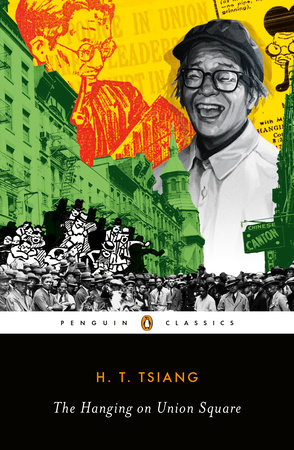
The Hanging on Union Square
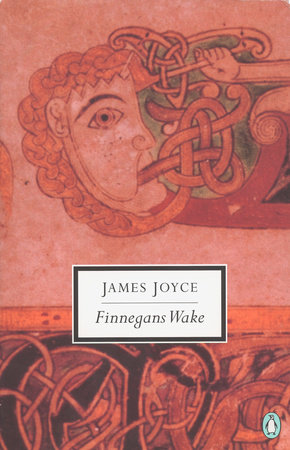
Finnegans Wake

Cane
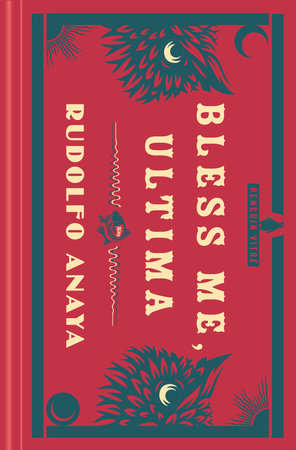
Bless Me, Ultima

The Portable Nineteenth-Century African American Women Writers
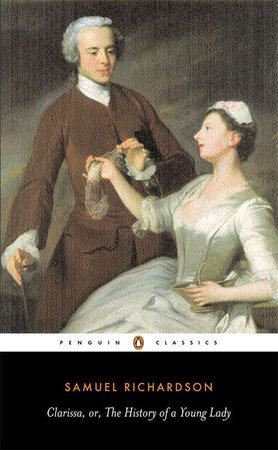
Clarissa, or The History of a Young Lady

The Makioka Sisters
Praise
Acclaim for Flora Thomson-DeVeaux’s Translation of The Posthumous Memoirs of Brás Cubas
“Is it possible that the most modern, most startlingly avant-garde novel to appear this year was originally published in 1881? . . . Machado’s book represents the moment when the novel learned to dance. . . . Flora Thomson-DeVeaux’s edition is a gift to scholars. Her introductory essay and notes offer a rich guide to Machado’s work and world—and an important corrective. . . . [Brás Cubas is] superb company.” —The New York Times
“Brilliant . . . Charming . . . Digressive, playful, and irreverent . . . Thomson-DeVeaux’s [translation] comes with thirty pages of helpful endnotes that offer explanations of Brás’s arcane literary and historical allusions, as well as deleted passages from early versions of the novel.” ―The New York Review of Books
“The best novel I have read in 2020 . . . [It] boasts a perceptive foreword by Dave Eggers. . . . In Thomson-DeVeaux’s hands, the text . . . rolls (often) merrily along, playful, acid, and with a liveliness impressive in an ‘author’ so dead. . . . Thomson-DeVeaux provides detailed and highly informative endnotes.” ―Andrew Stuttaford, The New Criterion
“[A] dizzying novel, so layered and duplicitous as to be a translator’s dream . . . The intensity of Thomson-DeVeaux’s personal engagement lifts her searching introduction and prolific endnotes. She also provides an essential bibliography. . . . Her deep research . . . has made all the difference to accuracy, while enriching the paratextual material. . . . The hope is that many more readers may come across this sui generis master, perched on his almost disconnected branch of the literary tree.” ―The Baffler
“[An] extraordinary book, a milestone in Latin American literary history . . . Outrageously funny and volubly impertinent . . . Not only does Thomson-DeVeaux explore the issue of Brazilian racial dynamics in her excellent introduction and endnotes, her attention to these themes is also reflected in her translation choices . . . [and] a deep engagement with social reality. . . . [In her] careful and meticulous translation . . . Thomson-DeVeaux brings across the unique rhythm of Machado’s prose, reproducing Brás’s clipped, highly punctuated syntax with great care. The peculiar tension between the sophistication of the style and the cruel absurdity of the content is maintained in English, allowing a unique 19th-century proto-Modernist Brazilian voice to be heard at full volume, in all its subtleties.” ―Los Angeles Review of Books
“This new translation . . . is the perfect chance to get reacquainted with the delights of [this] book . . . or to discover it for the first time. . . . Posthumous Memoirs contains the whole human comedy in 160 very short chapters. . . . Thomson-DeVeaux’s endnotes provide all the context you could wish for.” —The Guardian
“[An] excellent new translation.” ―Australian Book Review
“Highly entertaining . . . A fresh, lively translation . . . Machado deserves wider familiarity among English readers, and this is a fine place to start reading him.” —Kirkus Reviews, starred review
“Brilliantly idiosyncratic . . . Cubas endows every episode with scintillating digressions on history and literature along with gentle mockery of his own hypocrisy and pretensions. Thomson-DeVeaux’s limpid translation captures the charm and immediacy of de Assis. . . . His masterpiece reads like the best of dreams.” —Publishers Weekly, starred review
“A newcomer with superb talents who researches and writes as if she were a seasoned veteran . . . translator Thomson-DeVeaux has . . . a contagious love for Machado’s novel. . . . Her introduction, notes on the translation and endnotes, and the extensive endnotes themselves are all delightful. She really did her homework and demonstrates a true dedication to her purpose. . . . Her version maintains the page breaks for all chapters. . . . No one else does that. And given the typographical play in the book, it does make a difference. . . . [A] winning translation.” ―Words Without Borders
“A glittering masterwork and an unmitigated joy to read . . . It is wholly original and unlike anything other than the many books that came after it and seem to have knowingly or not borrowed from it. . . . This translation . . . is a glorious gift to the world, because it sparkles, because it sings, because it’s very funny and manages to capture Machado’s inimitable tone, at once mordant and wistful, self-lacerating and romantic.” —Dave Eggers, from the Foreword
“Not only are the endnotes impressively accurate and useful for foreign readers, but also the translation does honor to Machado de Assis’s style as it keeps an eye out for multiple layers of meaning and slippery descriptions, respecting the contours of a novel that, even as it feigns nonchalance, is in fact stunningly profound. . . . Thomson-DeVeaux is able to preserve the elegance, humor, sincerity, and roguishness of this masterpiece of Brazilian literature.” —Pedro Meira Monteiro, Princeton University
“Thomson-DeVeaux’s version flows better than any of the other translations and deals quite skillfully with some of the challenging nuances of the original. . . . An obvious difference between Thomson-DeVeaux’s translation and the previously published versions is the extensive apparatus of notes, which give very valuable cultural, historical, and literary information and will make the translation a valuable resource not just for those who must read the novel in English, but also for those with a reading knowledge of Portuguese.” —Paul Dixon, Purdue University
“Thomson-DeVeaux’s translation keeps Machado de Assis’s ambiguity in English and is thus much closer to his actual writing than previous translations. . . . And it respects a ‘secret’ of Machado’s literature—to wit, both its colloquial diction and the ability to produce virtually endless possible interpretations resorting to a disconcerting ‘simplicity’ in his writing manners. . . . Thomson-DeVeaux has succeeded with unparalleled elegance and precision.” —João Cezar de Castro Rocha, Rio de Janeiro State University
Acclaim for The Posthumous Memoirs of Brás Cubas
“One of those thrillingly original, radically skeptical books that will always impress readers with the force of private discovery.” —Susan Sontag
“A masterpiece of Epicurean irony.” —The New York Times
“One of those books which we call definitive. It is there, complete, done: a study of ironic disillusionment couched in the most delicate suavity of despair.” —The New York Times Book Review
“A tour de force of surprising modernity compared with the grim realism of the time. The Posthumous Memoirs of Brás Cubas displays a distinct voice—quiet, friendly, even cozy, yet full of wit and inventiveness. Cervantes comes to mind as a comparison, though the voice of Laurence Sterne (whom Machado acknowledges) can also be heard. . . . This is the language of visions spoken by a rogue who is trying to bedazzle and deceive the reader.” —The Wall Street Journal
“Belongs to a long line of brilliantly odd and (relatively) outrageous works like Laurence Sterne’s Tristram Shandy and Xavier de Maistre’s Voyage Around My Room . . . A very great novel indeed.” —The Nation
“Weird, funny, subversive, and undercelebrated in English.” —Electric Literature
Acclaim for Machado de Assis
“The supreme black literary artist to date.” —Harold Bloom
“The greatest writer ever produced in Latin America.” —Susan Sontag
“Another Kafka.” —Allen Ginsberg
“A great ironist, a tragic comedian . . . In his books, in their most comic moments, he underlines the suffering by making us laugh.” —Philip Roth
“A writer a hundred years ahead of his time . . . If Borges is the writer who made García Márquez possible, then it is no exaggeration to say that Machado de Assis is the writer who made Borges possible.” —Salman Rushdie
“A master.” —John Updike
“Machado is a miracle. . . . The most brilliant star in the sky of nineteenth-century Iberian-American novels.” —Carlos Fuentes
“One of the few writers who not only received a state funeral, but actually deserved it.” —Louis de Bernières
“The creator of a tremendous oeuvre and an inimitable sense of humor.” —José Saramago
“A great writer who chose to use deadly humor where it would be least expected to convey his acute powers of observation and his penetrating insights into psychology. In superbly funny books he described the abnormalities of alienation, perversion, domination, cruelty and madness. He deconstructed empire with a thoroughness and an esthetic equilibrium that place him in a class by himself.” —The New York Times
“One of the world’s great writers.” —The New York Review of Books
“Machado de Assis wrote some of the most deliriously adventurous fiction of the last century.” —Lingua Franca
“No satirist, not even Swift, is less merciful in his exposure of the pretentiousness and the hypocrisy that lurk in the average good man and woman. Machado, in his deceptively amiable way, is terrifying.” —The New Republic
“Machado de Assis . . . is held by many to be not only Brazil’s greatest writer but on a par with Henry James, Flaubert and Hardy [with] his enchantingly digressive style, sly humour and merciless exposure of hypocrisy and pretentiousness.” —The Guardian
21 Books You’ve Been Meaning to Read
Just for joining you’ll get personalized recommendations on your dashboard daily and features only for members.
Find Out More Join Now Sign In






